Categories
- Wire & Cable
- Multi-conductor & Signal Cable
- Battery Cable Assemblies
- Terminals and Connectors
- Electrical Parts
- Electrical Tools
- ID Products
- Wire Management
- Tape & Sealant
- Mounting Panels & Panel Blanks

Need Help?
Click HereGet a Business Account
Apply HereSpecialty Tools
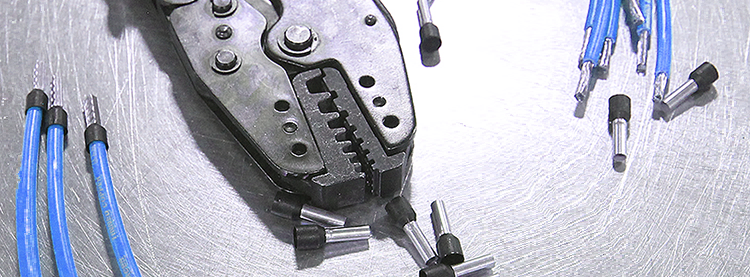
What are specialty tools?
Specialty tools are tools that are not so easy to categorize. Tools like cutters, strippers, and so on, are more easily understood. Specialty tools, on the other hand, include things like fish tape, electrical meters, and even lubricant. So, you see, these are tools, but since they do not have a category all their own, they fall in the specialty tools category. They may handle types of crimp connectors or another type of electrical wire connectors. This is the place to find the obscure and hard-to-find specialty tools you will not see elsewhere. Before you select one of our specialty tools, it's good to have an understanding of how they are different and what abilities each tool offers.
"This is the place to find the obscure and hard-to-find specialty tools you will not see elsewhere."
Where are these products implemented?
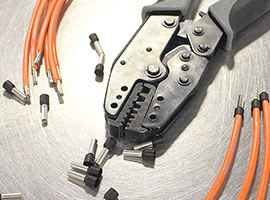
Specialty tools make otherwise impossible jobs easy
Specialty tools are implemented in applications where regular tools are not built for the task at hand. That is to say, specialty tools are used in specialized applications. This is why specialty tools are a little more rare than some other tools Pacer offers. They are ideal when performing new equipment installations as well as when replacing or maintaining equipment. All you will need are the proper connectors or cables. Some are made for crimp connectors while others handle various electrical connector types. Now let us take a look at the difference between telephony tools and coax tools.
What types of specialty tools are available?
We carry a range of specialty tools to handle a variety of tasks. In this way, you are sure to find the specialty tools that you have been looking for. Below, we will take a more in-depth look at the various style of specialty tools we carry and where you might want to use them.
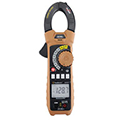
Electrical meters
Pacer offers different electrical meters, each specializing in a specific task. These electrical meters are designed to measure one or more properties of your electrical system. They are built to help you diagnose, understand, and manipulate parts of your electrical system so you can get your desired result. For example, our clamp meters allow you to measure how many amps are flowing through a given wire or cable without having to interrupt the circuit or disconnect anything.
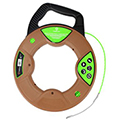
Fish tapes
Fish tapes are an extremely useful tool that allows you to run new wiring more easily. They achieve this by being fished through an opening or enclosed space until they come out the other side. Say you want to run a new wire through a section of the hull. You can fish the tape through the first opening and guide it through to the second opening. Now you would attach the new wire to the end of the fish tape and pull it back through. Once done, you will have properly run the wire through the otherwise difficult area.
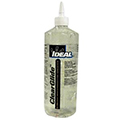
Lubricant
Our lubricant is often used in conjunction with our fish tapes. It allows a wire or cable to be pulled more easily through a problematic area. The clear, colorless liquid allows for excellent lubricity and super fast pulls. This means less fighting with the wire and more time to enjoy the end result. The specialized formula is perfect for all electrical and data-com applications and is safe to use with all types of cables. To make it even better, the lubricant is easy to wipe off and clean up.
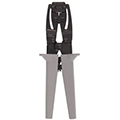
Ferrule crimpers
Ferrules are a unique type of terminal and require unique specialty tools to be properly terminated. We offer three different types of ferrule crimpers since these three specialty tools cover nearly every ferrule and application you are likely to run into. Each of our specialty tools is designed to excel in a given area and ferrule crimpers are no exception. Easy to use and designed for repeatability and accuracy, these are the ferrule crimpers that the professionals turn to.
What is the difference between the electrical meters?
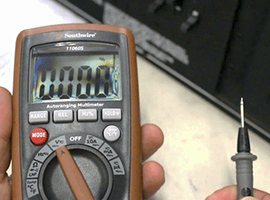
Our electrical meters can be separated into three main categories, circuit and voltage testers, multimeters, and clamp meters. Circuit and voltage testers are used to, you guessed it, measure voltage but more importantly, they are often used to tell if a circuit is live or not. This simple act can save lives. Multi-meters are a type of electrical meter that can detect and measure multiple aspects of an electrical current. This includes things like AC voltage, DC voltage, impedance, capacitance, and frequency. Clamp meters get their name from the clamp-type connection method that they use. Clamp meters allow you to get reading without having to make physical contact with any part of an electrical system. It is easy to see the advantages of that. Now that we have discussed each of the specialty tools in greater detail, it is time to consider where you would use them.
Where would I use specialty tools?
Where you would use specialty tools depends heavily on the specialty tools in question. Think about it. The fish tape is ideal for feeding wires through a tight spot, whereas our lubricant is made to make that job easier. You would only need to employ ferrule crimpers if you are crimping wire connectors, and the electrical meters are needed only if you are measuring parts of your electrical system. Using the right electrical connectors may make the job easier. These tools are perfect for use in marinas, repairs shops, job sites, and personal garages. My point is that where you would use these specialty tools is directly related to the task you are trying to accomplish. So, a better question would be how do I select the correct specialty tools for my application.
![]()
![]()

![]()
How do I select the correct specialty tools for my application?
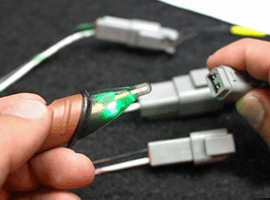
Selecting the correct specialty tools for your application starts by understanding what it is that you are trying to accomplish. Are you trying to determine if a circuit is live or not? Are you attempting to feed a wire through a tight location? Are you trying to connect wires to a European terminal block with ferrules? Once you know your intention and goals, it is much easier to determine which of our specialty tools are best suited to assist you. As always, feel free to reach out to one of our Pacer experts with any questions that you may have.
*This page was updated on 2/08/2023*


